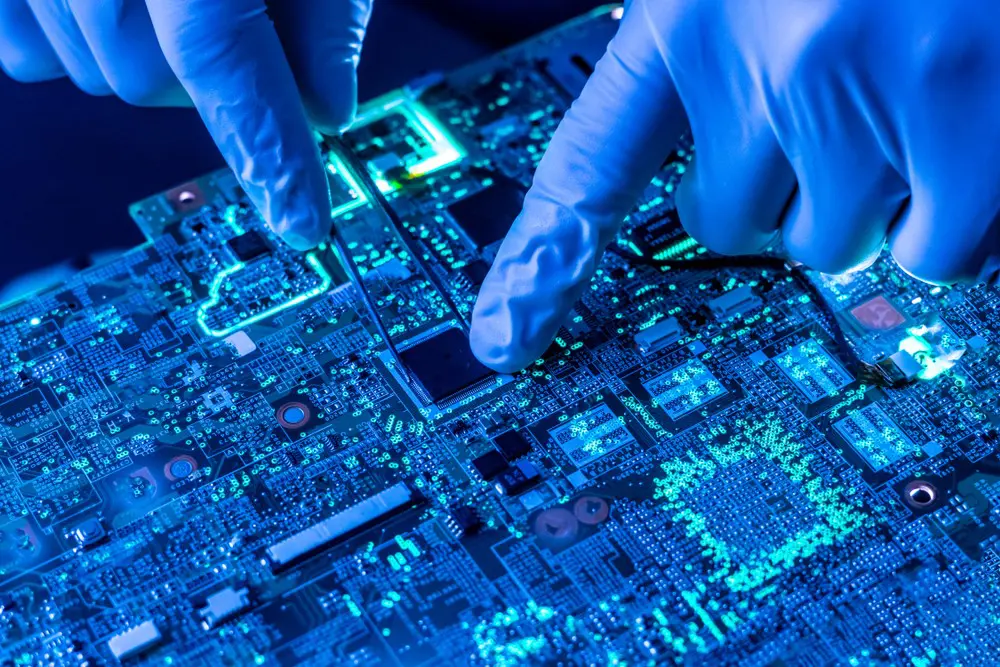Silicon semiconductors are known as the building blocks of contemporary technology, powering everything from small devices like mobiles or cell phones to military grade hardware like microchips and guidance systems. These tiny components are extremely powerful not only in devices but also in the global race for supremacy in technology.
The threats are rising as nations vie for supremacy in semiconductor supply chains. The management of these vital resources will determine the future of technology and the distribution of power across nations. Acquiring knowledge about the significance of silicon semiconductors can reveal information about which nations will eventually dominate technology as a whole.
The Role of Silicon Semiconductors in Technology
Silicon semiconductors power modern devices. They are in phones, computers, cars, and industrial equipment. The demand for these chips continues to grow. As technology advances, more devices require semiconductors.
The importance of semiconductors is evident in everyday life. For example, when a car’s production line halted due to a chip shortage, it highlighted the industry’s dependence. Without these chips, production stops. The global impact of such a shortage is significant.
Supply chains for semiconductors are intricate. Each chip involves multiple steps, from design to production. These steps require specific materials and expertise. Any disruption can delay production and affect industries worldwide.
Control over semiconductor supply chains is critical. Nations and companies that manage these chains can influence technology development. Those without this control risk falling behind in the global market.
The Global Semiconductor Supply Chain
The semiconductor supply chain is complex. It involves many steps, each with its own challenges. Raw materials must be sourced, chips must be designed and produced, and then distributed worldwide. Each step is crucial to the final product.
Most semiconductor production occurs in a few countries. Taiwan and South Korea are leaders in this field. The United States also plays a significant role. These countries have the resources and expertise to manage the intricate processes involved.
Global events can disrupt semiconductor supply chains. Natural disasters, political changes, or trade issues can affect production. When a factory in Taiwan faced an earthquake, production stopped, and the impact was felt globally. Industries relying on these chips experienced delays.
Countries are investing in their own semiconductor industries to reduce dependence. China, for instance, is working to become self-sufficient in chip production. The goal is to avoid reliance on foreign sources. This drive for independence shows the importance of semiconductor control in global politics.
The Geopolitical Implications of Semiconductor Control
Control over semiconductors affects global power dynamics. Nations that lead in semiconductor production can influence technology trends. This control also allows them to impact other countries’ technology sectors.
China’s push for semiconductor independence is one example. The country is investing heavily in its semiconductor industry. This investment is not just about economic growth. It is also about gaining leverage in global technology.
The United States and its allies are responding. They are working to secure their own semiconductor supply chains. This includes increasing domestic production and forming alliances with other countries. The goal is to ensure that they remain competitive in the technology race.
Semiconductor control is now a key part of geopolitical strategy. Nations that manage these supply chains can set terms in global technology. This control affects not just the economy but also national security. The stakes are high, and the competition is fierce.
The Future of Semiconductor Innovation
The future of technology relies on semiconductor innovation. New developments in chip technology will drive progress in many fields. However, innovation requires investment and expertise. Countries that lead in semiconductor research will shape future technology.
The semiconductor industry faces challenges. Resources are finite, and environmental concerns are growing. Sustainable production methods are becoming more important. How these challenges are addressed will influence the future of the industry.
Leaders in semiconductor innovation will have a significant advantage. They will set the pace for technology development. This leadership will impact economies and global power dynamics. The future of technology will be shaped by those who innovate in the semiconductor field.
Conclusion
Modern technology relies heavily on silicon semiconductors. Having control over their supply chains is essential. This regulation will dictate the countries that will be at the forefront of upcoming technology.
The race for control in the semiconductor industry continues. Nations are making significant investments in order to protect their supply chains. The result will influence the worldwide technology scene for a long time.
Comprehending the importance of semiconductors is crucial in forecasting the future of technology. The future will be shaped by the countries that have control over these chips. The competition is fierce, and the risks are significant.
At New Tech Sourcing, we are cognizant of the future implications of silicon semiconductors. With take steps to prepare for a future where high-quality electronics will be a norm in various industries. Our electronic parts inventory contains MIL-SPEC High Reliability parts that are hard to find. If there is a part you have in mind, let us know and we will source it for you.
